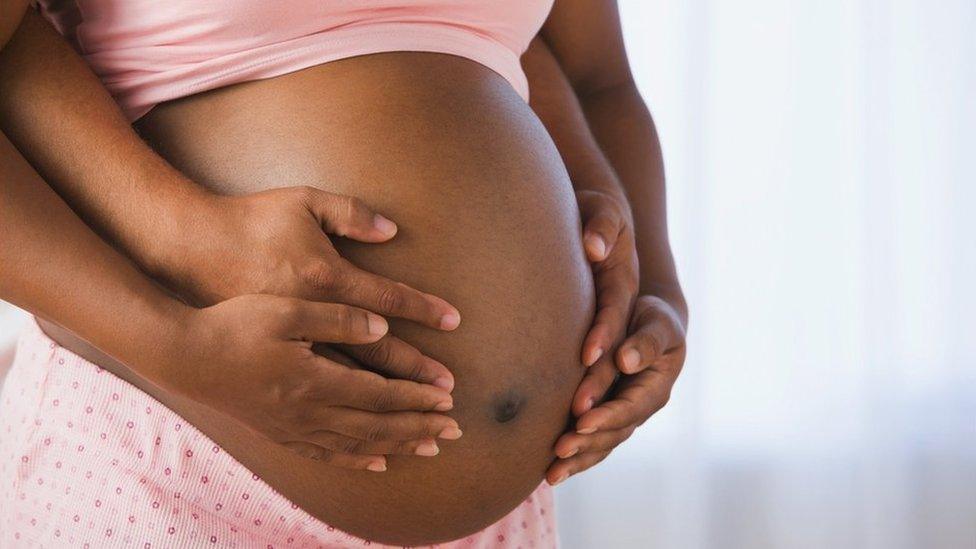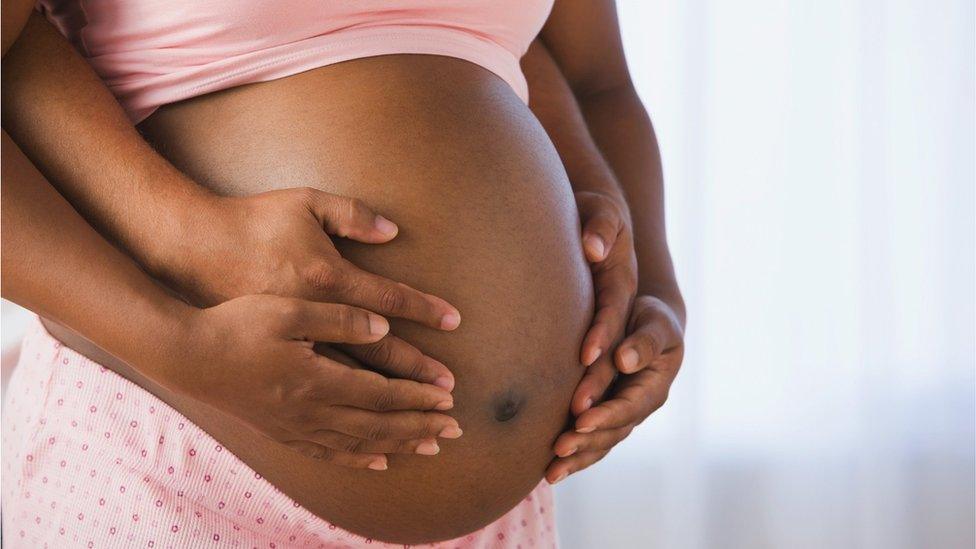University of Leicester team finds more stillbirths in deprived areas
- Published

The authors found inequalities persisted among those living in the most deprived areas and minority ethnic groups
Research suggests there are higher rates of stillbirth and neonatal death for those living in deprived areas and minority ethnic groups.
A report from a team at the University of Leicester shows that while overall stillbirth and neonatal mortality rates have reduced, inequalities persist.
MBRRACE-UK, the team that carried out the research, said it had looked at outcomes for specific ethnic groups.
The group said it hoped the work would help target support and intervention.
'Deeper dive'
The report showed the stillbirth rate in the UK had reduced by 21% over the period 2013 to 2020 to 3.33 per 1,000 total births.
Over the same period the neonatal mortality rate has reduced by 17% to 1.53 per 1,000 births.
However despite these improvements, the authors found inequalities persisted, with those living in the most deprived areas, minority ethnic groups and twin pregnancies all experiencing higher rates of stillbirth.
Elizabeth Draper, professor of perinatal and paediatric epidemiology at the university, said: "In this report we have carried out a deeper dive into the impact of deprivation and ethnicity on stillbirth and neonatal death rates.
"For the first time, we report on outcomes for babies of Indian, Pakistani, Bangladeshi, Black Caribbean and Black African, rather than reporting on broader Asian and black ethnic groups, who have diverse backgrounds, culture and experiences.
"This additional information will help in the targeting of intervention and support programmes to try to reduce stillbirth and neonatal death."
The study found that for the period 2016 to 2020, the highest stillbirth rates were for babies of Black African and Black Caribbean ethnicity from the most deprived areas, at about eight per 1,000 total births.
It also found the highest neonatal death rates were for babies of Pakistani and Black African ethnicity from the most deprived areas, at more than three per 1,000 live births.
It said that compared with other ethnicities, babies of Black African, Black Caribbean, Pakistani and Bangladeshi ethnicity were nearly twice as likely to be from deprived areas. They were much more affected by the higher rates of stillbirth and neonatal death associated with deprivation.
It also found that over the past five years the gap between singleton and twin death rates has become wider, with the risk of stillbirth over twice as high in twins and the risk of neonatal death is more than three times higher.
MBRRACE-UK is a collaboration led from the National Perinatal Epidemiology Unit in Oxford with members from Leicester leading the perinatal aspects of the work.
The University of Birmingham, The Newcastle upon Tyne Hospitals NHS Foundation Trust, Bradford Teaching Hospitals NHS Trust, and Sands, the stillbirth and neonatal death charity also form part of the programme.
Robert Wilson, head of the Sands and Tommy's joint policy unit, said: "Much more concerted action is required if we are going to achieve ambitions to reduce the number of babies that die before or shortly after birth, tackle unacceptable inequalities, and ensure everybody can benefit from best-practice care throughout pregnancy and the neonatal period.
"If the government is serious about achieving its ambitions to save more babies' lives and reduce inequalities it must commit to the workforce and funding required to achieve this."
A Department of Health and Social Care spokesperson said: "We are committed to making the NHS the safest place in the world to give birth, regardless of ethnicity or social background."

Follow BBC East Midlands on Facebook, external, on Twitter, external, or on Instagram, external. Send your story ideas to eastmidsnews@bbc.co.uk, external.
Related topics
- Published14 October 2021
